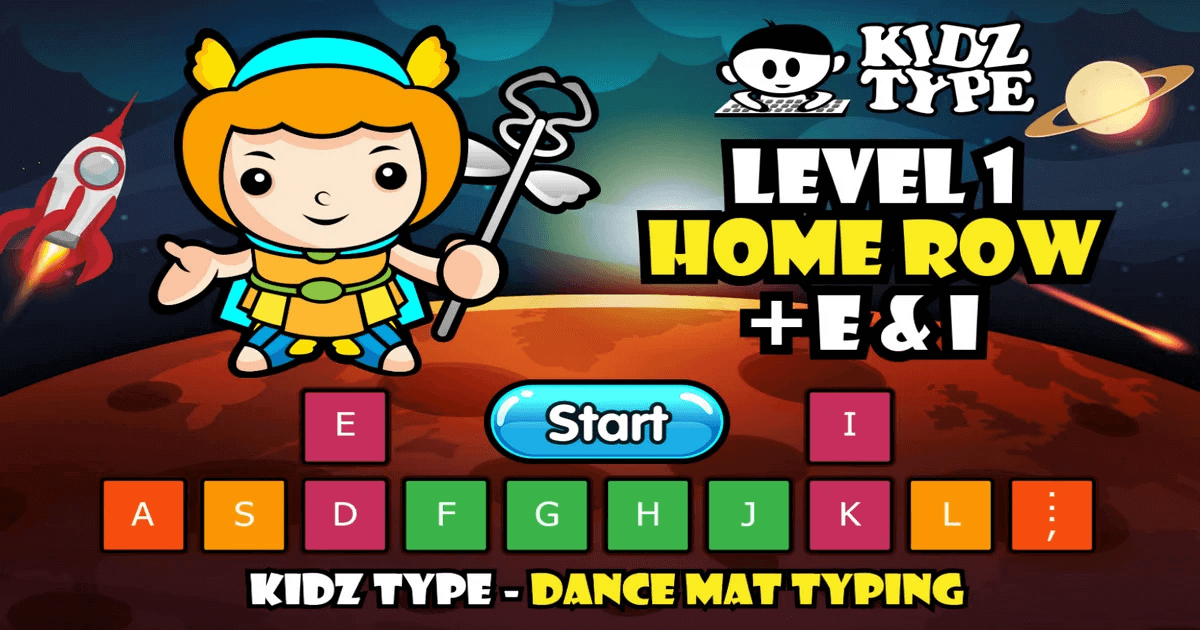In today’s increasingly digital world, typing is no longer just a useful skill; it’s a necessity. As students become more dependent on technology for learning, effective typing skills have become an essential part of their education. Programs like Kidztype are designed to address this need, helping children build typing proficiency in a fun and engaging way. But beyond simple typing speed, how does a platform like it influence learning and academic performance? This article explores the significant impact that typing skills can have on a child’s overall educational experience and how tools like it contribute to this development.
The Importance of Typing in Modern Education
Typing has become an integral part of modern education, especially as students now complete many tasks on digital platforms. From writing essays to conducting research, the ability to type quickly and accurately is a skill that enhances efficiency and productivity in the classroom. For younger students, developing these skills early can make a significant difference in their ability to keep up with assignments, tests, and projects. Typing proficiency allows students to express their thoughts more clearly and quickly, making it easier for them to focus on the content of their work rather than the mechanics of typing. This shift in focus can significantly improve their ability to perform well academically. Moreover, with the rise of online learning and testing, being able to type comfortably and efficiently is now an important aspect of a student’s success.
How Typing Improves Cognitive Development
Learning to type does more than just improve a student’s ability to navigate the digital world—it also enhances cognitive development. Typing, particularly when practiced regularly, requires coordination between the brain, eyes, and fingers. This coordination stimulates brain activity, improving hand-eye coordination and motor skills. Furthermore, when children practice typing, they are also developing their memory. Repeated use of a keyboard requires memorizing the location of the keys, which strengthens the brain’s capacity to recall information quickly. This cognitive improvement can translate into other academic areas, such as reading and problem-solving. The ability to type efficiently can help students’ complete tasks faster and with fewer errors, freeing up mental resources for higher-level thinking. This is crucial in subjects like writing and research, where students need to focus on analyzing information and crafting well-thought-out responses.
Kidztype: A Fun Approach to Typing Mastery
One of the key challenges in teaching typing is keeping students engaged. Traditional typing drills can be tedious, especially for younger learners. Kidztype addresses this challenge by incorporating interactive games and exercises that make learning to type enjoyable. By gamifying the learning process, it transforms typing practice into an exciting experience. This approach keeps students motivated and eager to improve their typing skills. As children play typing games, they become more comfortable with the keyboard and start to increase their typing speed and accuracy without even realizing it. The platform offers a range of lessons tailored to different skill levels, allowing children to progress at their own pace. This personalized learning experience helps build confidence, as students see measurable improvements in their typing ability over time. In addition to its effectiveness, it also provides instant feedback, which helps students identify areas for improvement and continue refining their skills.
Enhancing Writing Skills Through Typing
One of the most direct ways typing impacts academic performance is by improving writing skills. When students can type fluently, they can devote more attention to organizing their thoughts and expressing ideas, rather than struggling with the mechanics of writing by hand or typing slowly. For example, when a student is typing out an essay, they can quickly draft, edit, and reorganize their work with ease. This allows them to focus on the quality of their content rather than worrying about how long it will take them to type it out. By practicing with platforms like it, students can develop the typing speed and accuracy needed to quickly get their ideas down on paper, leading to more cohesive and well-developed writing assignments.
Increasing Student Engagement and Confidence
Confidence is a critical factor in academic success, and proficiency in typing can significantly boost a child’s self-esteem. When students feel comfortable typing, they are more likely to engage in classroom activities that require writing or research, such as answering questions during online tests or participating in virtual discussions. Kidztype’s engaging interface and game-based learning help build this confidence by making typing practice less intimidating. As students complete more lessons and see their progress, they feel a sense of accomplishment. This, in turn, motivates them to continue practicing and improving their skills. Moreover, typing skills enable students to participate more actively in group projects and class discussions that require quick written responses. Whether collaborating on shared documents or responding to questions in a digital format, students with strong typing skills can contribute more effectively and feel empowered in their learning.
Typing’s Role in Online Learning and Testing
In recent years, online learning has become a staple of education. Many schools have adopted digital platforms for both teaching and testing. This shift makes typing skills even more essential. Students who lack typing proficiency may struggle to complete timed tests or keep up with virtual lessons, leading to frustration and lower academic performance. Programs like it equip students with the necessary typing skills to excel in this environment. By practicing typing regularly, students can improve their speed and accuracy, making it easier to complete tasks during online exams and navigate learning management systems. In addition to exams, students often need to engage in online discussions, submit assignments electronically, and use digital tools for research. Strong typing skills ensure that they can complete these tasks efficiently and accurately, giving them an advantage in the increasingly digital classroom.
Preparing Students for the Future
Typing is a foundational skill that extends far beyond the classroom. As students progress through their academic journey and eventually enter the workforce, the ability to type efficiently will remain a valuable asset. Nearly every career today involves some level of digital literacy, and typing is a core component of that. By starting early with tools like it, students can develop strong typing skills that will serve them throughout their education and into their professional lives. Whether they are drafting emails, creating reports, or conducting research, proficiency in typing will make them more productive and confident in their digital interactions.
Conclusion
Typing skills play a crucial role in enhancing academic performance by improving cognitive abilities, boosting writing skills, and preparing students for the digital demands of modern education. With engaging platforms like Kidztype, children can develop these essential skills in a fun and interactive way. As students build their typing proficiency, they become more confident learners, better equipped to succeed in school and beyond.






Comments